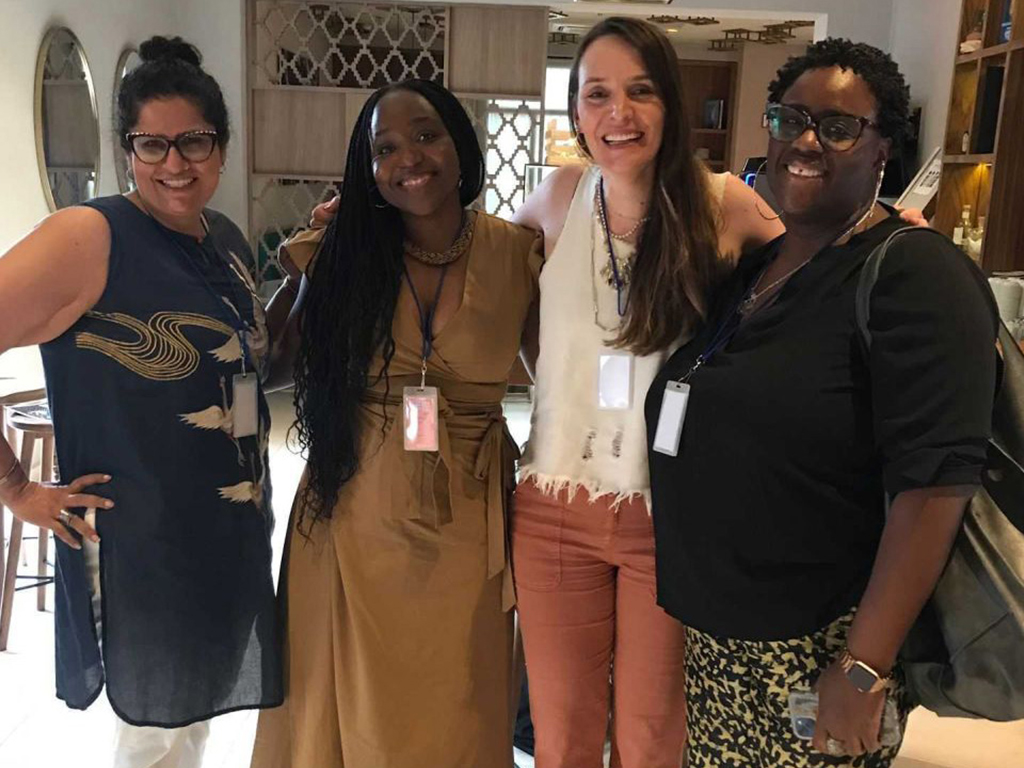By Shama Dossa
What does it mean to use power-building and feminist approaches to Monitoring, Evaluation and Learning (MEL) in philanthropy?
This is the question we Shama Dossa, [Fenomenal Funds] and fellow feminist practitioners Clara Desalvo [FRIDA | The Young Feminist Fund], Boikanyo Modungwa [Purposeful], and Ramatu Bangura [CRIF]) posed to funders at the Discover Journeys recently co-organized at the Human Rights Funders Network’s Global Conference held in Oaxaca, Mexico.
Patriarchal, imperialist, and colonial forces have long attempted to delegitimize indigenous epistemologies and elevate western modes of thinking, knowing, and therefore being. These strategies have worked to erase girls, women, indigenous people, LGBTQI+ (and other marginalized groups) from the history of social change and to disconnect activists, collectives, and movements from knowledge, which is a powerful force in our work for freedom and justice.
Monitoring, Evaluation, and Learning (MEL) is seen as a central function of funding initiatives to ensure accountability to funders. It has been defined as a set of systematic processes to use evidence to judge the merit, worth, or significance of these philanthropic initiatives. Specifically, evaluation aims to assess achievement of funder objectives, as well as efficiency, effectiveness, impact, and sustainability, but rarely does it acknowledge the role the funder plays in this power equation.
Feminist MEL practitioners are shifting this narrative through their actions. The Discovery Journeys at HRFN focused on the need to document and share our work and the work of the movements we support. We feel this is a profound act of resistance in the face of a set of systems that never wanted feminist movements to claim their knowledge and its use. In the sessions, we explored why and how we need to move beyond traditional forms of monitoring, evaluation, and learning in a way that challenges and overcomes the inherent power-laden nature, which Western knowledge generation practices often create and perpetuate.
- What is worth knowing? What is worth learning about? What constitutes knowledge in philanthropy, and who determines it?
- How is that ‘known’ or ‘learnt’? What qualifies as ‘participatory’? Data collection methods? Who are the experts? Who CAN know/ BE knowledge holders? Why is the HOW important? (The tools, methodologies, processes we undertake determine WHO we hear from and what we hear.)
- How is that learning permeated, disseminated, communicated, and archived? Who is the creator and consumer of knowledge? To what purpose? For whom? What equity considerations and ethical practices need to be in place?
As we grapple with these questions, we will be reflecting on some of our practices in upcoming publications. Stay tuned for more updates on this conversation! Sign up to the Fenomenal Funds

